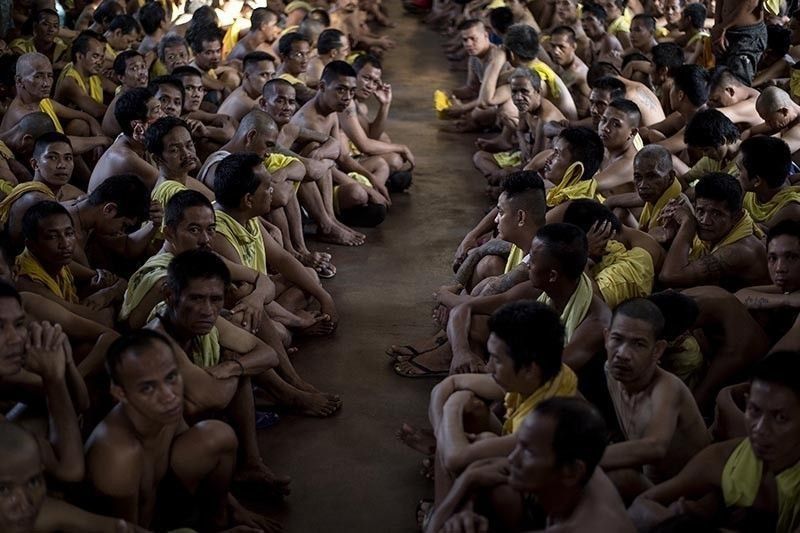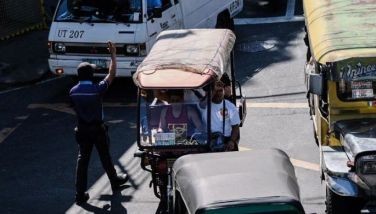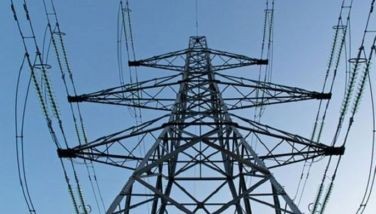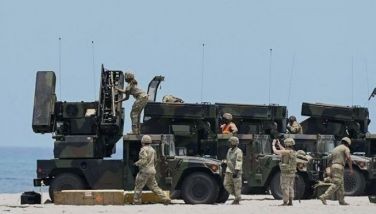As gov't continues vaccination program, inmates wait to be included in priority list

MANILA, Philippines — As the task force against COVID-19 refines and updates its priority vaccination list, inmates sharing cramped spaces in Philippine jails and prisons continue to wait to be included in the government’s priority vaccination list.
But Justice Secretary Menardo Guevarra said Tuesday that his department will push for the inclusion of Persons Deprived of Liberty in the priority list. “The DOJ will argue on the basis of greater COVID risk due to overcrowding,” he added.
The latest data from the Bureau of Corrections said that there are 48,238 PDLs as of February 2021 in the seven facilities under its management.
Penal and detention facilities across the country are known to be overcrowded, where social distancing and proper hygiene — practices meant to deter spread of the novel coronavirus — are practically impossible for inmates.
Guevarra said the National Task Force against COVID-19 will take place this week. He added that the DOJ’s request will also cover inmates in Bureau of Jail Management and Penology facilities and police custody.
The DOJ chief earlier said that inmates who are elderly and with comorbidities will be included in A2 and A3 of the priority list, along with other Filipinos in the same categories.
RELATED: LIST: Who are in the A4 priority group for COVID-19 vaccination?
The US State Department on its report on human rights practices in the Philippines said that despite early lockdowns in prisons and inmates freed in pandemic policies, overcrowding and poor conditions in these facilities still led to the spread of COVID-19 among PDLs.
On top of overcrowding, prison facilities also suffer from "poor sanitation, inadequate ventilation, poor access to natural lighting, and a lack of potable water, further contributing to health problems," the report found.
Deadly riots
Containing the spread of the coronavirus inside the BuCor facilities are not the only problems that the bureau faced since the pandemic. Prison authorities and the DOH also had to stop deadly riots inside the New Bilibid Prison.
In 2020, two deadly gang brawls erupted in Bilibid. In October, at least nine inmates were killed while seven were hurt. A month later, another riot took place where three died and 64 others were injured.
Guevarra ordered an investigation into the riots and possible negligence of BuCor officials in the two deadly incidents inside the Bilibid in a month.
In October, following the first riot, the DOJ chief said: “What I want to know is how such a violent incident could happen in the wee hours of the morning and last for hours, and why the prison authorities failed to detect and prevent such a huge gang war that left many inmates dead or injured.”
Guevarra said he received the report from BuCor on the riots last year. The bureau explained that the riots were due to “long-standing rivalry ignited by a rather flimsy encounter.”
The bureau said members of the warring Sigue Sigue Sputnik and Sigue Sigue Commando gangs were involved in the deadly brawl.
“Since then the BuCor has taken several measures, from removing gang tattoos to frequent searches for improvised weapons,” the DOJ chief said, adding that: “There have been no new riots reported inside the NBP since the beginning of this year.”
“Efforts are now heavily focused on containing the spread of COVID-19,” he also said.
Inmates’ health is State responsibility
Penal and detention facilities across the country are known to be overcrowded, where social distancing and proper hygiene—practices meant to deter spread of the novel coronavirus—are practically impossible for inmates.
COVID-19 cases among inmates in the Bureau of Correction facilities, including the New Bilibid Prison, went as high as 251 in September 2020 with at least 26 fatalities. The Bureau of Jail Management and Penology meanwhile logged 1,987 cases among persons deprived of liberty, although numbers went down to 88 active cases in December, with five fatalities.
SPECIAL REPORT: Beyond arrest, raps: 'Quarantine violators' face trauma, COVID-19 risk too
In March, Kapatid, a support organization for political prisoners and their families, stressed that under the United Nations Standard Minimum Rules for the Treatment of Prisoners, inmates’ health care is a responsibility of the state and they should enjoy the same standards of services that are available in the community. PDLs should also be granted access to necessary health care services without discrimination on their legal status.
"We ask your office to help ensure the rights to life and health of prisoners, including all political prisoners. Please do not fail them this time," Kapatid spokesperson Fides Lim said then in a letter to the Department of Health, noting that the Supreme Court had already failed them when it only remanded their plea for temporary release of sickly political prisoners after a five-month wait.
The SC and Department of Justice have issued policies to help decongest the prisons that allowed the release of thousands of inmates.
"With an unenviable record of having the highest jail congestion rate in the world, the Philippine prison system is a death trap," Lim said then.
- Latest
- Trending





























